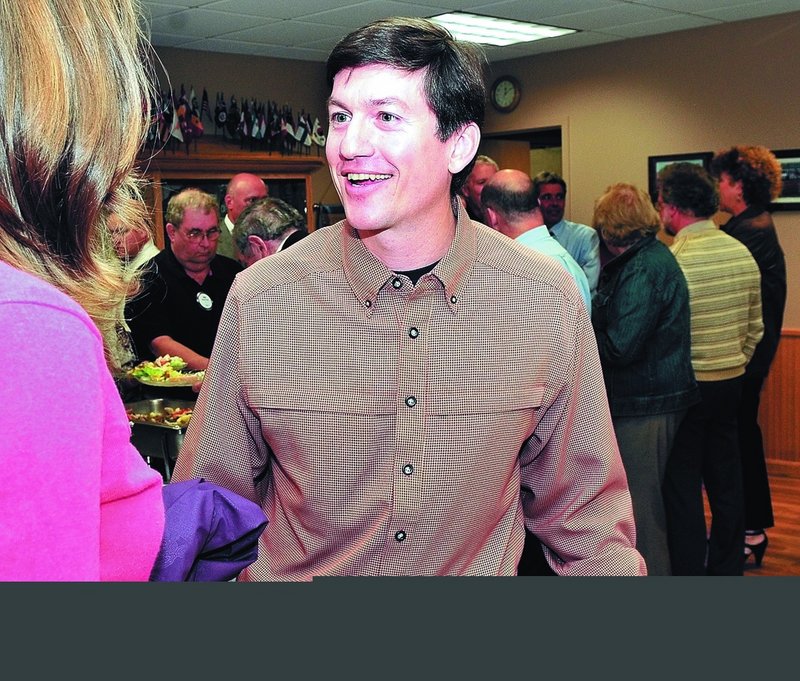WATERVILLE — Say, for whatever reason, independent candidate Kevin Scott can’t vote for himself for governor in the November election.
Who else would he vote for?
“I would write in Susan Merrow – that’s my wife,” Scott said. “Because she’s eminently qualified.”
Scott’s answer, in response to a question from the audience, came Monday afternoon during his meeting with the Waterville Rotary Club at the Alfond Youth Center. About 60 people attended the luncheon.
Scott, 42, a businessman from the small western Maine town of Andover, repeatedly told the Rotarians that he wouldn’t have all the answers as governor, but he would turn to legislators, state employees and citizens to come up with innovative solutions to tough problems.
Scott is chairman of the Andover Water District and owner of a company called Recruiting Resources International, which places engineers with high-tech firms.
He downplayed the suggestion that he’s unqualified to be governor, saying the job is deceptively simple. It’s not to go over a “history lesson” of what’s wrong and propose a pre-packaged political agenda in response, he said, but rather to study the issues carefully and seek “Maine-based” solutions to specific problems from professionals.
In other words, “when you have the body on the table, then you do the dissection.”
But by Scott’s own admission, “the hard part’s getting elected.” Recent polls have shown Scott – one of five candidates on the ballot, including three independents – dead last, with only 1 percent of the total vote.
Scott’s speech to the Rotary Club focused on reducing the state’s energy costs, instituting a voluntary 32-hour workweek for state employees, tackling the state’s “unfunded” pension liability, and economic growth that focuses on year-round agriculture.
On energy, Scott said businesses and families are struggling under the fifth-highest energy costs in the country.
He criticized the state’s partnership with ISO New England, which manages the region’s power grid, saying Maine’s electricity rates have spiked since the deregulation measure began a decade ago.
Another big money problem: the state pension plan has an unfunded liability of $4.4 billion for state workers’ pensions. Scott said he would push for a “new model” that involves stopping state contributions to employee pensions, because “a solution shouldn’t add onto that unfunded liability.”
Scott also defended his proposal for a voluntary 32-hour workweek for state employees, saying that if just 3,000 of the state’s 15,000 workers agreed, it could save $110 million on payroll.
Send questions/comments to the editors.


